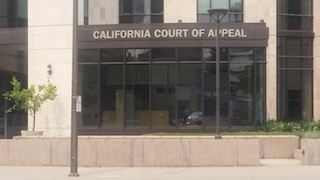The first and original version of Penal Code § 1170.91 became effective on January 1, 2015. It required sentencing judges to consider any trauma, substance abuse and mental health problems caused by a defendant’s service to the United Stated military as mitigating factors weighing in favor of a low-term sentence.
In 2018, the Legislature amended § 1170.91, designating the original language as subdivision (a) and adding subdivision (b), which created a remedy for qualifying defendants who were sentenced before 1170.91 went into effect.
Section 1170.91(b)(1) provides that a person currently serving a determinate sentence for a felony conviction, whether by trial or plea, who is, or was, a member of the United States military and who be suffering from sexual trauma, traumatic brain injury, post-traumatic stress disorder, substance abuse or mental health problems as a result of his or her military service may petition for a recall of sentence . . . to request resentencing pursuant to subdivision (a) if the person meets both of the following conditions: (a) the circumstance of suffering from sexual trauma, traumatic brain injury, post-traumatic stress disorder, substance abuse, or mental health problems as a result of the person’s military service was not considered as a factor in mitigation at the time of sentencing and (b) the person was sentenced prior to January 1, 2015. The law applied retroactively, whether the case was final on January 1, 2015.
As with most new legislation, its exact limits are tested in our courts, the first such cases usually making their way to the appellate courts two or three years later.
Penal Code § 1170.91(b) is no different in this regard, as the case of Alexander Irwin Valliant from the Orange County Superior Court shows.
 Fourth Appellate District CA Court of Appeal Santa Ana
Fourth Appellate District CA Court of Appeal Santa Ana
After a September, 2014 incident, Valliant was charged with second degree robbery (Penal Code § 211, 212.5(c)), criminal threats (Penal Code § 422(a)), carrying a dirk or dagger (Penal Code § 21310), carrying a loaded firearm in public (Penal Code § 25850(a) and (c)(7)) and driving on a suspended license (Vehicle Code § 14601.1).
In March, 2015, after an unsuccessful effort to transfer the case to veteran’s court, he negotiated a plea bargain wherein he pled guilty to second degree robbery and to personal use of a firearm during the commission of the robbery in exchange for a sentence of twelve years in state prison (two years for the robbery, plus ten years for the use of the firearm).
While in custody, apparently suspecting he suffered from PTSD and an opioid abuse disorder, Valliant contacted the Department of Veterans Affairs (VA) in 2017. The VA then verified that Valliant indeed suffered from both disorders as a result of his military service.
In April 2019, Valliant filed a petition for resentencing under Penal Code § 1170.91. He argued that he was entitled to relief because his PTSD and substance abuse, both related to his military service, were not considered as a factor in mitigation when the court sentenced him.
Valliant contended that 1170.91 was applicable to him “whether or not the case was final on January 1, 2015.”
The trial court in Orange County disagreed with him and because he was sentenced after January 1, 2015, denied his petition.
Valliant then appealed this ruling to the Fourth Appellate District Court of Appeal in Santa Ana, which affirmed the trial court.
The Fourth Appellate Court noted from the outset that since Valliant argued about the meaning of the statute terms, it was a pure issue of law. Therefore, the appellate court could review the trial court’s ruling “from the start,” or de novo. People v. Prunty (2015) 62 Cal.4th 59, 71.
The appellate court then noted that 1170.91 is clear on its face and that when the language of a statute is “clear and unambiguous” and thus not reasonably susceptible to more than one meaning, “there is no need for construction, and courts should not indulge in it.” People v. Leal (2004) 33 Cal.4th 999, 1007. Also, courts are “obligated to avoid statutory constructions which render other provisions of the statute superfluous.” People v. Arias (2008) 45 Cal.4th 169, 180.
Here, the appellate court decided January 1, 2015 and before were the dates the legislature stated the statute applied to, which made sense because veterans sentenced before the original version of 1170.91 went into effect on January 1, 2015, did not have an incentive to investigate the existence of military-related trauma or substance abuse because the law did not require those issues to be treated as mitigating factors in sentencing. However, once the statute went into effect, veterans were on notice that any military-related trauma or substance abuse would have to be treated and presented as mitigation.
We bring this summary to the reader’s attention to emphasize that the January 1, 2015 date is not seen by courts as flexible.
The citation for the Fourth Appellate District Court ruling discussed above is People v. Alexander Irwin Valliant (4th App. Dist., 2020) 55 Cal. App. 5th 903, 269 Cal. Rptr. 3d 839.
For more information about military sentencing options, please click on the following articles:
 Fourth Appellate District CA Court of Appeal Santa Ana
Fourth Appellate District CA Court of Appeal Santa Ana